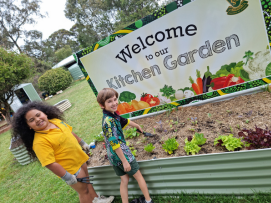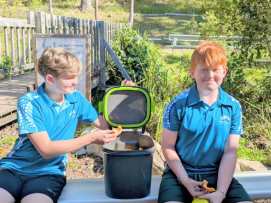What system is right for us?
Usually is it not one or the other. It depends on your school setting and what waste collection services are available in your area. Different schools also create different waste and of course have different spaces available.
By processing some organic waste on site, you will create products that you can then use around the school grounds. Students can get some hands-on learning about how nature recycles and the benefits of composting.
However, as an average student produces 7kg of food waste a year, it is a good idea to supplement with an organic commercial collection. This service is increasingly on offer by the local council or whole of government contractor.
The first step in deciding how to manage your organic waste is to conduct a food waste audit to see how much is generated by your school. Also look at the amount of paper/cardboard and garden waste you have as these support composting and/or worm farming.
- How many students are there in the school and so what capacity do you need of each system?
- Choose the systems where the outputs are suitable for the school site.
- How would your GA or Environment or Gardening club use finished compost or worm castings?
- What support is there for implementing systems from both within the school but also from the school community?
Look at what additional funding or support may be available in your area to help support the implementation of on-site organic waste management. Your local council may subsidise food waste management programs and it is always worth checking with your local banks, supermarkets and/or hardware store to see if they can support the school.
The guide to setting up food waste separation systems has more information to help.



